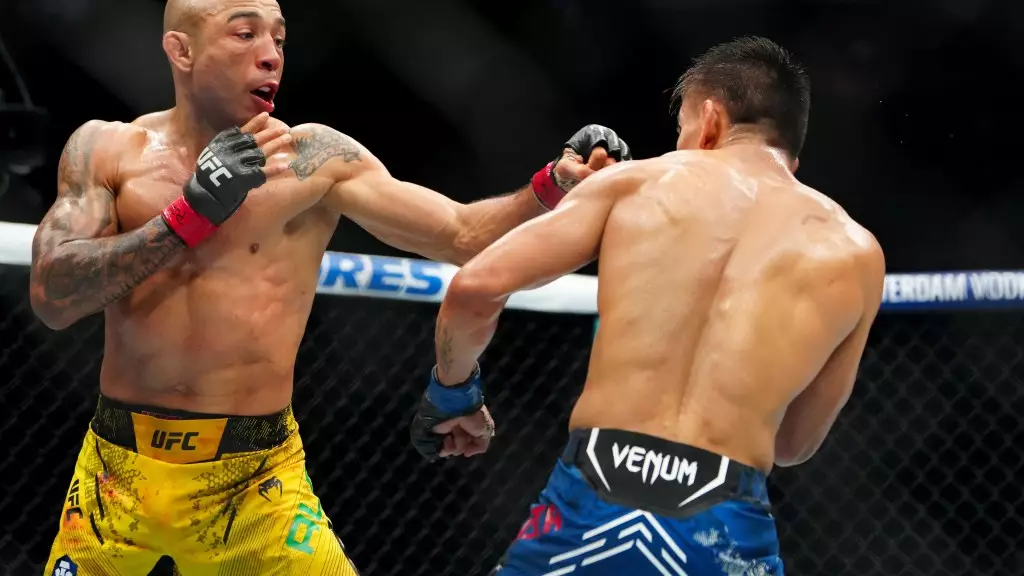In a highly anticipated match at UFC 307, former featherweight champion Jose Aldo faced Mario Bautista, ultimately suffering a split decision loss. The event took place in Salt Lake City, where Aldo’s performance raised significant questions among fans and analysts alike. With a career record of 32 wins and 9 losses, Aldo stepped into the octagon, but this fight marked another setback for the legendary fighter, who has struggled to maintain form in his later years.
T.J. Dillashaw, a former bantamweight champion, shared some pointed critiques of Aldo’s performance following the bout. During a discussion on the Jaxxon Podcast, he expressed his disbelief that a fighter of Aldo’s caliber was unable to effectively navigate his way out of unfavorable positions. Despite not facing any takedowns, Aldo found himself pinned against the cage in the crucial third round of the fight, which ultimately swayed the judges in Bautista’s favor.
Dillashaw highlighted a critical moment in the match where Aldo appeared passive, allowing Bautista to control the pace and the space. This lack of urgency, according to Dillashaw, cost Aldo the fight. “My frustration is coming from, how the f*ck does Aldo not know how to get off the cage?” Dillashaw remarked, emphasizing the importance of movement and positioning in the sport. The discussion sheds light on a broader theme in mixed martial arts: the need for adaptability and technique even at the highest levels of competition.
Dillashaw’s commentary pointed towards a strategy that seemed to involve conserving energy, which in retrospect proved to be a poor choice. Remaining passive against the cage can lead to a perception of weakness in the eyes of the judges, as it appears that the fighter is being dominated. Aldo’s reluctance to risk tiring himself out ultimately backfired, leaving the fight’s outcome open to interpretation and swaying the decision against him.
The former champion’s approach highlights a dilemma that many fighters face: the balance between energy conservation and effective engagement. While maintaining stamina is crucial for survival in the octagon, relying too heavily on defense can lead to missed opportunities and a lack of offensive output. “You’re just chancing it,” Dillashaw noted, suggesting that Aldo gambled with his chances by not actively responding to Bautista’s pressure.
The loss against Bautista adds to Aldo’s growing list of challenges since he announced his shift towards a possible retirement from mixed martial arts. This bout underscores the need for continued evolution among experienced fighters. While Aldo’s legacy as a fighter is secure, adapting his strategy to the evolving nature of the sport is essential if he intends to reclaim his status among the elite.
Ultimately, Aldo’s defeat is a reminder that even the most accomplished fighters must remain vigilant and responsive in the cage. As he assesses his performance and strategy, the path forward will require introspection and possibly a renewed focus on the fundamentals that brought him success in the first place. The fight game rewards those who can adapt, and for Aldo, the next steps will be crucial in determining the final chapters of his storied career.

